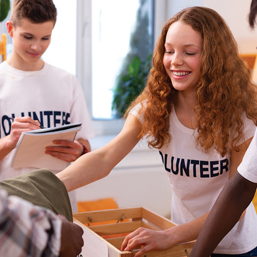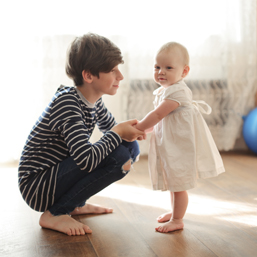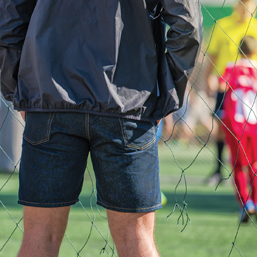



Volunteering, or the newer term, “community engagement,” is about aligning your passion with a social need to create change. At what age should your child begin volunteering? “Stephen’s Backpacks” began when a five-year-old heard there were children who had no home. Sutton Garner co-founded “I Can for Kids” at 11 years old when she learned that over the summer months, many children go hungry. One years old is never too young to begin practicing kindness.

You’ve made the kids’ lunches the night before. The kids have picked out their school outfits and laid them out before lights out. Backpacks are ready and waiting by the front door. Your younger kids have a picture schedule. Your older kids are capable of telling time. Everyone knows what they need to do and when they need to do it in order to get to school on time. It should be simple but somehow, it’s not. Despite your best planning, you’re rushing - maybe even yelling - as you herd people toward the front door. Not only are you stressed, but your kids are late. Again.

No sooner had I nestled myself into the family room recliner to enjoy a cup of coffee and a good book than I heard the litany of gripes bemoaned from upstairs. “Why can’t that kid play with his own toys?! He always steals my stuff! Why can’t I just lock my dooooor?”

Teaching your kids to have goals, do their best, and leverage personal momentum to succeed are all good ideas. However, there is a difference between supporting a child’s efforts to reach their goals and taking control of the results you deem the best possible outcomes. Parents who habitually steamroll their kids rob them of personal experience on multiple levels. When parents over-step, kids can lose their point of view; their self-esteem may go down; they may feel confused, anxious, or depressed; and they may focus too much on pleasing their parents instead of honoring their own desires.
Calgary’s Child Magazine © 2024 Calgary’s Child